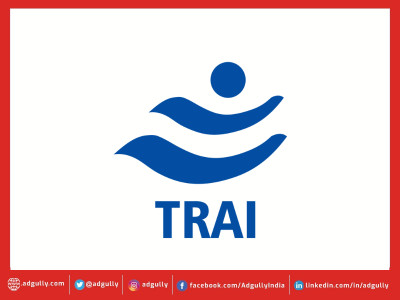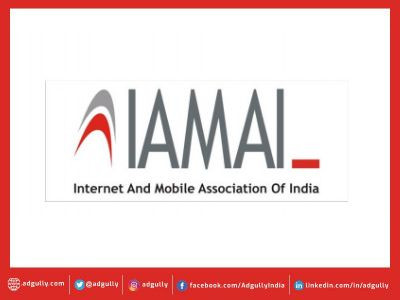Mixed industry reaction to TRAI's ban on discriminatory tariffs
The Telecom Regulatory Authority of India (TRAI) has issued a set of regulations, Prohibition of Discriminatory Tariffs for Data Services, 2016, that states that “No service provider shall offer or charge discriminatory tariffs for data services on the basis of content”.
In its order issued, TRAI said, “Keeping in view India’s large number of Internet users and content producers, both of which are rising exponentially, the Authority has taken a view that prohibition of discriminatory tariff for data services is necessary to ensure that service providers continue to fulfil their obligations in keeping the Internet open and non-discriminatory.”
As per the new regulations, a fine of Rs 50,000 will be levied on defaulting service providers for each day of contravention, subject to a maximum of Rs 50 lakh.
The ruling will hit services like Facebook’s Free Basics and Airtel Zero, which have been lobbying for differential data pricing.
These regulations come into effect immediately. From the date these regulations come into effect, no new launches of prohibited packs, plans or vouchers shall be permitted.
Telecom Service Providers (TSPs) are prohibited from offering different tariffs based on the content, service, application or other data that a user is accessing or transmitting on the Internet. TRAI ruled that tariff for data services cannot vary on the basis of the website/ application/ platform/ or type of content being accessed. For example, a consumer cannot be charged differently based on whether she is browsing social media site A or B, or on whether she is watching streaming videos or shopping on the Internet.
TSPs are also prohibited from entering into arrangements that have the same effect as charging discriminatory tariffs on the basis of content. Thus, an arrangement by which, instead of a service provider differentially charging tariffs to the consumer, other arrangements are made by the TSPs, which in effect make accessing some content cheaper, for example through a refund to the consumer or other methods, are likewise barred.
Differential tariffs being offered for data transmitted over closed electronic communications networks, such as intranets are not prohibited by these regulations. Though the prohibition on discriminatory pricing of data services does not apply to such networks, which are not accessing the Internet, if such a closed network is used for the purpose of evading these regulations, the prohibition will nonetheless apply.
At the same time, to strike a balance and in view of the need to bring more users on the Internet, this prohibition shall not apply to other forms of tariff differentiation that are entirely independent of content. For instance, providing limited free data that enables a user to access the entire Internet is not prohibited. A service provider may reduce tariff for accessing or providing emergency services, or at times of grave public emergency.
Industry reaction
Calling TRAI’s regulation a “bold and fair move”, the Internet and Mobile Association of India (IAMAI) said that this would ensure that the basic tenets of Net Neutrality are followed in India.
IAMAI pointed out that in a very clear and transparent ruling, TRAI had explicitly said “no service provider shall offer or charge discriminatory tariffs for data services on the basis of content” and “No Service provider shall enter into any agreement or contract, by whatever name called, with any person, natural or legal, that has the effect of discriminatory tariffs for data services being offered or charged to the consumer on the basis of content.”
In a statement issued, IAMAI said that the Association had taken a ‘no exception standpoint’ against differential pricing. This ruling vindicates the Association’s stand on the issue. The Internet start-up eco-system and the Internet user community are delighted.
IAMAI has also welcomed the move that TRAI will be the ultimate authority to decide the cases of violations of this ruling and that the decision of the authority is final and binding.
However, the Association has a slight concern on the exception and the exception to the exception as to how this entire thing will pan out. It hoped that the exceptions to the rule would not be misused by the TSPs. The exception states “...regulation shall not apply to tariffs for data services over closed electronic communications networks...”
Also welcoming the move, Amresh Nandan, Research Director, Gartner, remarked, “TRAI notification favouring net-neutrality is in line with what we saw in the US (in 2010 when FCC favoured ‘Open Internet’ and then came up with ‘Open Internet order’ during early 2015). The European Union also ruled in favour of treating all Internet traffic equally. Though some of their amendments allowed for differentiation and have been a subject of intense criticism.”
He added, “Proponents of net neutrality all over the world have been highlighting the importance of democratic values of the Internet and even a marginal attempt to curb it can possibly trigger all kinds of differentiation. Further, TRAI’s notification is in support of the Government’s focus on start-up as well as penetration of the Internet, without compromising on access to content. Start-ups today are heavily dependent on open access of Internet and any direction to control it can have detrimental effect on them as well as the Government’s push to start-up ecosystem.”
Nandan also stated that while telecom service providers might not be happy with this notification, they still had the ability and freedom to create different kind of Internet access packages, as long as content was not a parameter to provide or bar access to anyone. “Such practices have already started elsewhere with products such as bandwidth on demand, bandwidth calendaring, etc., to create premium products. Obviously, it will require changes in network and operations, but that’s where the telecom roadmap goes,” he added.
Expressing the telecom service providers’ views on TRAI’s regulation, Rajan Mathews, Director General, Cellular Operators Association of India (COAI), in a statement issued, said, “The telecom industry is disappointed with TRAI’s decision to rule out differential pricing. COAI had approached the regulator with the reasons to allow price differentiation as the move would have taken us closer to connecting the one billion unconnected citizens of India. By opting to turn away from this opportunity, TRAI has ignored all the benefits of price differentiation that we had submitted as a part of the industry’s response to its consulting paper, including improving economic efficiency, increase in broadband penetration, reduction in customer costs and provision of essential services among other things.”
He further said, “In our opinion, TRAI’s regulation on prohibiting differential pricing constitutes a welfare-reducing measure of high concern by blocking a possible avenue for our less-advantaged citizens to move to increased economic growth and prosperity by harnessing the power of the Internet. We believe that this measure will have an impact on the Government’s ambitious Digital India initiative.”















Share
Facebook
YouTube
Tweet
Twitter
LinkedIn